This is a list of German plays:

German literature comprises those literary texts written in the German language. This includes literature written in Germany, Austria, the German parts of Switzerland and Belgium, Liechtenstein, Luxembourg, South Tyrol in Italy and to a lesser extent works of the German diaspora. German literature of the modern period is mostly in Standard German, but there are some currents of literature influenced to a greater or lesser degree by dialects.
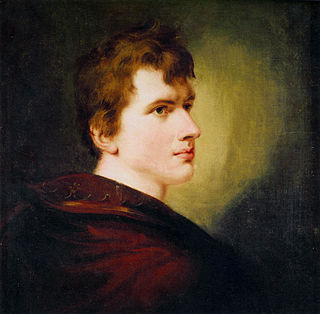
Carl Joachim Friedrich Ludwig von Arnim, better known as Achim von Arnim, was a German poet, novelist, and together with Clemens Brentano and Joseph von Eichendorff, a leading figure of German Romanticism.
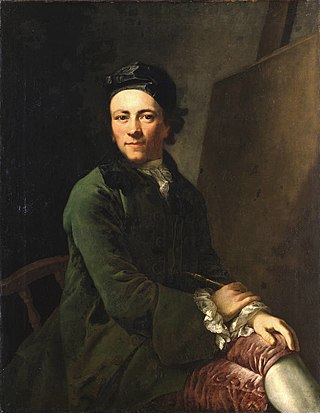
Anton Graff was an eminent Swiss portrait artist. Among his famous subjects were Friedrich Schiller, Christoph Willibald Gluck, Heinrich von Kleist, Frederick the Great, Friederike Sophie Seyler, Johann Gottfried Herder, Gotthold Ephraim Lessing, Moses Mendelssohn and Christian Felix Weiße. His pupils included Emma Körner, Philipp Otto Runge and Karl Ludwig Kaaz.
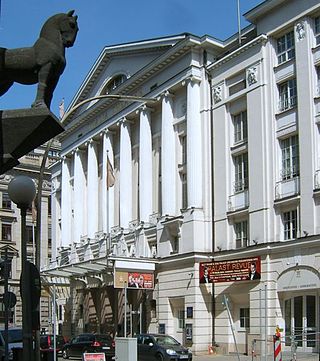
The Thalia Theater is one of the three state-owned theatres in Hamburg, Germany. It was founded in 1843 by Charles Maurice Schwartzenberger and named after the muse Thalia. Today, it is home to one of Germany's most famous ensembles and stages around 9 new plays per season. Current theatre manager is Joachim Lux, who in 2009/10 succeeded Ulrich Khuon.

Weimar Classicism was a German literary and cultural movement, whose practitioners established a new humanism from the synthesis of ideas from Romanticism, Classicism, and the Age of Enlightenment. It was named after the city of Weimar, Germany, because the leading authors of Weimar Classicism lived there.
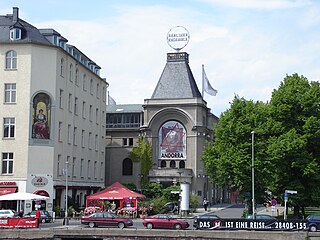
The Theater am Schiffbauerdamm is a theatre building at the Schiffbauerdamm riverside in the Mitte district of Berlin, Germany, opened on 19 November 1892. Since 1954, it has been home to the Berliner Ensemble theatre company, founded in 1949 by Helene Weigel and Bertolt Brecht.
Franz Peter Wirth was a German film director and screenwriter. His film Helden was nominated for an Academy Award for Best Foreign Language Film in 1958.
Hamid Arzulu is an Azerbaijani poet, writer, translator, dramatist, scientist, teacher and a doctor of philology. He lives in the city of Nakhchivan, Azerbaijan.

The Altes Theater was the first theatre building in the German city of Leipzig. It was on the site of today's tramway station Goerdelerring near Richard-Wagner-Platz.

Der Kanon or more precisely Marcel-Reich-Ranickis Kanon is a large anthology of exemplary works of German literature. Edited by the literary critic Marcel Reich-Ranicki (1920–2013), he called the anthology, announced on 18 June 2001 in the German news magazine Der Spiegel under the title "The Canon of worthwhile German Works", his magnum opus. The five parts appeared from 2002 to 2006 published by Insel Verlag: 1. Novels (2002), 2. Tales/Stories (2003), 3. Dramatic Works (2004), 4. Poetry (2005), and 5. Essays (2006). As expected, the anthology met with opposition and criticism, and even the idea of an anthology was questioned, but Reich-Ranicki called this questioning "incomprehensible, because the lack of a canon would mean relapse into barbarism. Reich-Ranicki sought to differentiate his anthology from previous compilations in his hope to imagine a "reader judge" such as teachers, students, librarians, who would need to draw from this canon because they were in the "first line of those who deal with literature professionally."

Franz Muncker was a German literary historian.
Bernhard Blume was an emigre from German Empire who became a professor of German literature at Mills College, Ohio State University, Harvard University, and the University of California, San Diego. In addition to scholarly works, he authored several plays, a novel, and an autobiography.
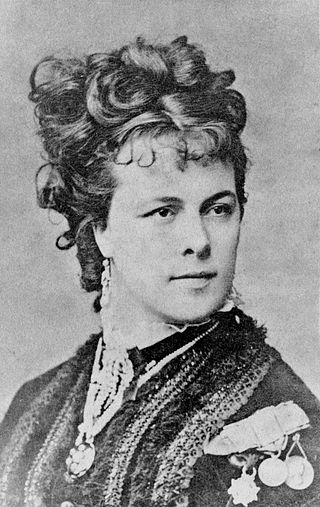
Klara Ziegler, also Clara Ziegler, was a German stage actress and writer.

Christian Ferdinand Hartmann was a German portrait and Classical history painter.
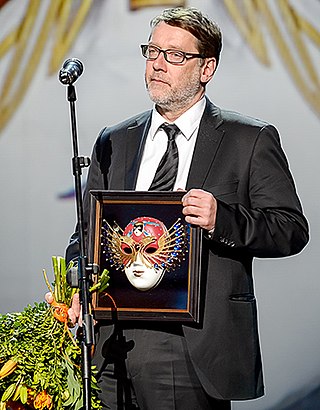
Michael Thalheimer is a German theatre director.

Berndt Stübner was a German actor, puppet maker, playwright and theatre director.

Auguste Sophie Crelinger (widowed Stich, born Düring was a German stage actress.